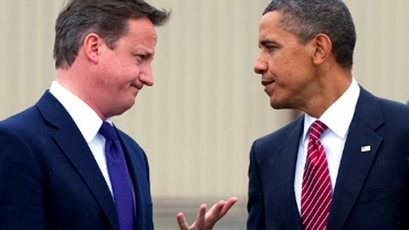NEW ORLEANS, Louisiana (AFP) – The US government allowed the BP cap stemming the oil flow in the Gulf of Mexico to remain in place Tuesday as plans for a "static kill" were discussed to seal off the source of the ecological disaster.
US disaster response commander Admiral Thad Allen said engineers had found seepage and other anomalies, but said none were "consequential" enough to stop the well integrity test, now in its fifth day.
"At this point there is not any reason to believe that we have anything that's a major issue in relation to the well's integrity from the seepageswe've located," said Allen.
"We have agreed that we will go forward with another 24-hour period" through Tuesday
Despite his optimism, Allen ordered BP to produce a "detailed timeline" for restarting operations to contain the oil with a fleet of surface vessels if the cap had to be opened again.
The announcement on Thursday that BP had stopped the oil flow completely for the first time since April raised hope among devastated communities along the Gulf Coast that a three-month nightmare may soon be over.
Measuring devices on BP's cap have given steadily increasing high-pressure readings, which would indicate there are no major leaks in the well bore that stretches an astonishing 2.5 miles (four kilometers) below the seabed.
BP wants to keep the valves on the cap closed continuously until operations to permanently seal the well can begin in less than two weeks time, meaning no more toxic crude would stream into the Gulf.
Allen is more cautious and insists that keeping the cap on until the relief well operation is not a done deal as there are still too many uncertainties to know it has been shut in safely.
"We will make decisions on the well integrity test on a day-by-day basis knowing that events could present themselves that would require us to go to a containment system," he said.
Both Allen and BP floated the idea of a new operation to plug the well called the "static kill" -- very much like the "top kill" operation that failed almost two months ago.
BP said the idea would be to send down heavy drilling mud as before through the giant blowout preventer valvethat sits on top on of the well and then inject cement to seal it.
"We're still very much in the design and planning phase," said senior BP vice president Kent Wells. "We've got some real experienced teams working on this over the next couple of days."
Planning was still in initial stages, Allen said, stressing that the relief well was still the ultimate fix.
The latest estimate for when the relief well will intercept the leaking well is July 29 and the plugging operation would then take place by mid-August.
Gulf residents, who have seen the crude tarnish their shorelines and cripple the local economy since a rig leased by BP exploded and killed 11 workers on April 20, are desperate for a permanent fix so they can clean up and start to rebuild.
Kenneth Feinberg, who manages BP's 20-billion-dollar compensation fund, said capping the well would allow compensation claims to move forward more quickly as the extent of the damage becomes clearer.
He urged fishermen, oyster gatherers and hotel owners and other businesses to come forward with claims, including emergency payments to cover the first six months of damages.
Residents face a tough choice: whether to accept compensation from the fund or pursue legal action against BP or the other companies involved.
"I'll be much more generous than any court will be, and at the same time you won't need to pay lawyers' costs," said Feinberg.
Oil has washed up on the coasts of all five Gulf states -- Texas, Louisiana, Mississippi, Alabama and Florida -- since the BP-leased Deepwater Horizon rig sank on April 22, two days after the explosion.
The crude oil has killed birds, closed fishing grounds, decimated the tourism industry and done untoldenvironmental damage.
If the upper estimate of over four million barrels are confirmed, the disaster would be the biggest accidental oil spill ever.
http://news.yahoo.com/s/afp/20100720/bs_afp/usoilpollutionenvironment



Tidak ada komentar:
Posting Komentar